Second day of the Youth Policy Symposium: summing up the results
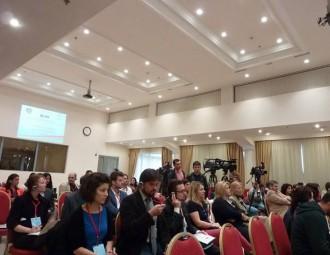
“A step to European integration”, “the best way to keep the information about the EECA countries updated” and “the place for changes” – these are the assessments of the event given by experts.
Let us recall that on November 13-14 Armenia hosted Youth Policy Symposium with EECA countries “Role of youth work in education for democratic citizenship and participation”. The two-day event gathered about 50 stakeholders in Yerevan. The participants came from different countries of the region, including national governmental authorities in charge of youth and education, youth workers and youth leaders with interest and experience in the topic, as well as representatives of local authorities, researchers and other relevant stakeholders.
During the first day presentations of the Armenian youth policy and experiences in this field was given by David Hayrapetyan; the situation in the region and a thorough research was introduced by Areg Tadevosyan.
The Youth Policy Symposium with EECA countries continued with the panel discussion that dealt with the role of youth work in education for democratic citizenship and participation. Four experts from the youth spheretook part in the discussion: Karin Lopatta-Loibl from the European Commission; Hranush Shahnazaryan, the representative of the Advisory Council on Youth and the Council of Europe; Matthias Christensen from theEuropean Youth Forum; and Andriy Pavlovych, coordinator of theSALTO Eastern Europe and Caucasus Resource Center.
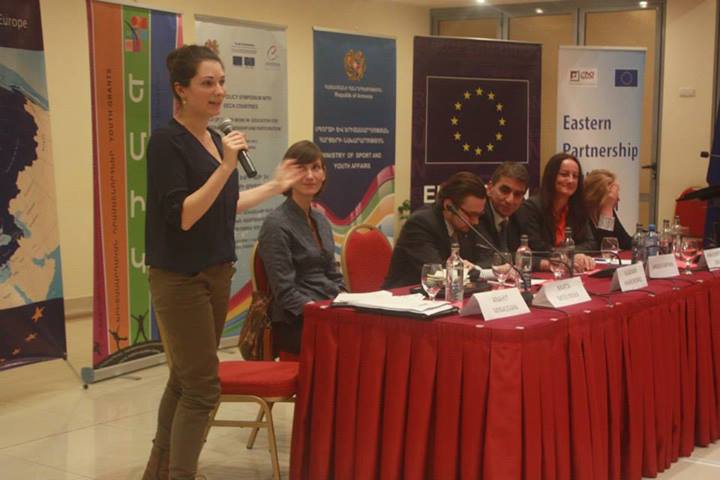
Karin Lopatta-Loibl, who was the first speaker at the panel, underlined that the EU Strategy for Youth, which was adopted in 2009, is flexible, and its quality is a continuous priority for the youth policy. “The 2013–2014 EU presidency trios consisting of Ireland, Lithuania and Greece are working on social inclusion now; and youth policy is an indispensable part of it”, argued Karin Lopatta-Loibl. EaP Youth Forum in Kaunas, organized by Lithuania presidency in October this year, had youth work at its core as well, recalled the expert.
The difference between the EU and EaP situation with the youth work is the legal frameworks and non-governmental activism accordingly, specified Andriy Pavlovych. He also compared patriotic and citizenship education: “Although they are connected, they are not equal. In the Soviet Union youth education and civil society awareness were highly developed; we even used to address people as “citizens”. However, it had nothing to do with democracy”, - the expert explained. Youth participation is one of the two priorities for the EECA now.
Hranush Shahnazaryan from the Advisory Council on Youth talked about the outcome of the EaP Youth Window. Eastern Partnership Youth Window is part of a broader range of initiatives undertaken by the European Commission to increase support to cooperation with the Eastern Partnership neighbouring countries in the field of youth. Under this initiative, it is envisaged to provide additional funds to the EU Youth in Action Programme in order to increase opportunities for cooperation among young people, youth workers and youth organisations from the EU as well as from the EaP neighbouring countries including Belarus.
Later in the day four working groups were initiated for further discussion on the role of youth work in education for democratic citizenship and participation. Each working group had come up with proposals for actions that could be achieved by the actors from the EECA region. The topics raised within the working groups included inter-sectoral approach, supporting intercultural dialogue of young, innovation and reaching out to young people with fewer opportunities.
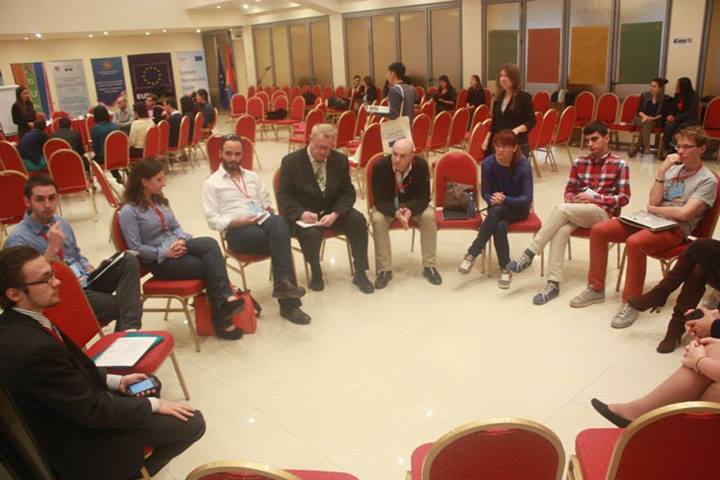
On November 14 the symposium provided space for a panel discussion on the status and recognition of youth work and its links with policy. The participants of the forum had a chance to adopt the practices of both regional and wider European stakeholders, who were seeking to define the status of youth work in the region and level of its recognition. Presentations were prepared by Bodnar Iryna, All-Ukrainian Association for Youth Co-operation ALTERNATIVE-V; David Capecchi, Director of European Youth Information and Counselling Agency (EPYICA); Alex Petrov, the Secretary General of National Youth Council of Moldova; Kateryna Shalayeva from the Pool of European Youth Researchers; Petyo Kanev fromtheMinistry of Youth and Sports of Bulgaria, and Marta Medlinska, the representative of the EU-CoE Youth Partnership.
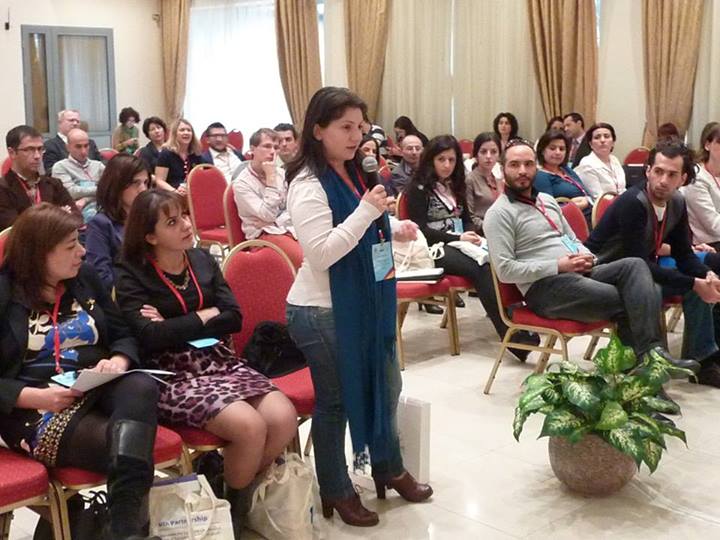
An open session for the stakeholders and a final plenary session summed up the results of the conference. Kateryna Shalayeva produced the general report of the Youth Policy Symposium. The expert stressed the necessity to understand the needs of the society, not introduce initiatives from above. “My message would be that the place for changes is not in Brussels, but in every individual within the society”, - emphasized Kateryna Shalayeva.

“We consider this event to be a step to European integration”, - stated Armen Papyan, the head of the Youth Department in the Ministry of Sport and Youth Affairs of Armenia.
All the speakers at the plenary session agreed that the symposium was successful and quite productive. The participants managed to cover all the sides of the topic in question, Marta Medlinska assured. “Such symposiums are the best way to keep the information about the countries updated; as we can’t always prepare timely reports”, - she said. Karin Lopatta-Loibl, the representative of the European Commission, closed the symposium, voicing hope that such youth forums will be run at regular basis in the future.
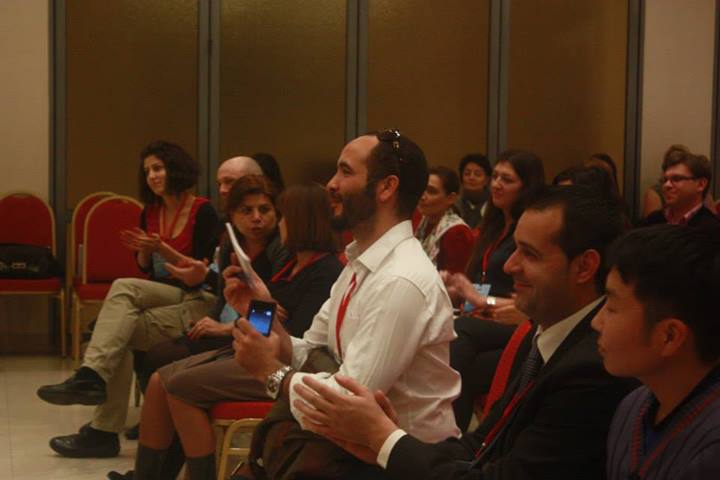
![]()
![]()
-
03.01
-
07.10
-
22.09
-
17.08
-
12.08
-
30.09



























